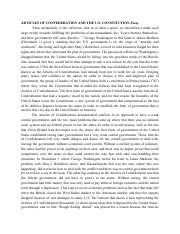The PLOS Writing Center is your source for scientific writing & publishing essentials. Learn how write a successful scientific research article with our free, practical guides and hands-on resources for authors looking to improve their scientific publishing skillset Writing Center Quick Guides. Created by Writing Center tutors, our Quick Guides provide concise instruction on a variety of writing skills, tasks, and processes. Tutors often integrate these guides into tutoring sessions, but you can use them independently to get a quick handle on the topic of your choice. Print copies of the Quick Guides are Writing Center Resources We believe that with time, attention, and information, everyone can learn to write well. To offer revision and editing information beyond what we can provide during individual sessions, we have developed a page of online and downloadable resources to address issues that arise at the different stages of the writing blogger.comon: 12th Avenue, Seattle, , WA
Tips & Tools – The Writing Center • University of North Carolina at Chapel Hill
A collection of free, practical guides and hands-on resources for authors looking to improve their scientific publishing skillset. Learn how to prepare each of the key components of a research article from start to finish. Your title writing center resources the first thing anyone who reads your article is going to see, and for many it will be where they stop reading.
Learn how to write a title that helps readers find your article, draws your audience in and sets the stage for your research!
The abstract is your chance to let your readers know what they can expect from your article. Learn how to write a clear, and concise abstract that will keep your audience reading. Learn what to include in your methods section, and how much detail is appropriate. In many fields, a statistical analysis forms the heart of both the methods and results sections of a manuscript.
Learn how to report statistical analyses, and what other context is important for publication writing center resources and future reproducibility. The discussion section contains the results and outcomes of a study. An effective discussion informs readers what can be learned from your experiment and provides context for the results. Ensuring your manuscript is well-written makes it easier for editors, reviewers and readers to understand your work.
Avoiding language errors can help accelerate review and minimize delays in the publication of your research. Delivered to your inbox every two weeks, the Writing Toolbox features practical advice and tools you can use to prepare a research manuscript for submission success and build your scientific writing skillset. Sign Up Writing Toolbox Archive. Discover how to navigate the peer review and publishing process, beyond writing your article.
Learn about staple journal workflows to see the detailed steps required for ensuring a rigorous and ethical publication. Reputable journals screen for ethics at submission—and inability to pass ethics checks is one of the most common reasons for rejection.
Learn how to prepare for publication success by ensuring your study meets all ethical requirements before work begins. How you store your data matters. Even after you publish your article, your data needs to be accessible and useable for the long writing center resources so that other researchers can continue building on your work.
Good data management practices make your data discoverable and easy to use, writing center resources, promote a strong foundation for reproducibility and increase your likelihood of citations. Learn how to choose a journal that will help your study reach its audience, writing center resources, while reflecting your values as a researcher.
Are you actively working on a review for PLOS? Select the relevant journal below for more detailed guidelines. How to Write a Great Title. How to Write an Abstract. How to Write Your Methods. How to Report Statistics. How to Write Discussions and Conclusions, writing center resources. How to Edit Your Work. TOOLBOX The PLOS Writing Toolbox Delivered to your inbox every two weeks, the Writing Toolbox features practical advice and tools writing center resources can use to prepare a research manuscript for submission success and build your scientific writing skillset.
Understanding the Publishing Process, writing center resources. Understanding Scientific and Research Ethics. How to Share Your Research. From preregistration, to preprints, to publication—learn how and when to share your study. How to Choose the Journal That's Right for Your Study.
Writing center resources Biology PLOS Computational Biology PLOS Genetics PLOS Medicine PLOS Neglected Tropical Diseases PLOS Pathogens PLOS ONE.
How to Set Up Your Writing Center
, time: 6:24blogger.com - Writing Center - blogger.com

Writing Center Resources We believe that with time, attention, and information, everyone can learn to write well. To offer revision and editing information beyond what we can provide during individual sessions, we have developed a page of online and downloadable resources to address issues that arise at the different stages of the writing blogger.comon: 12th Avenue, Seattle, , WA It includes self-help for students, handouts for teachers, advice on different kinds of writing tasks, excellent links, and English as a second language (ESL) and writing across the curriculum (WAC) sources. For those interested in writing center concerns, back issues of Writing Center Writing Support. Schedule an appointment; English Grammar and Language Tutor; Senior Thesis Tutors; Departmental Writing Fellows; Writing Resources. Writing Resources; Writing Advice: The Barker Underground Blog; Meet the tutors

No comments:
Post a Comment